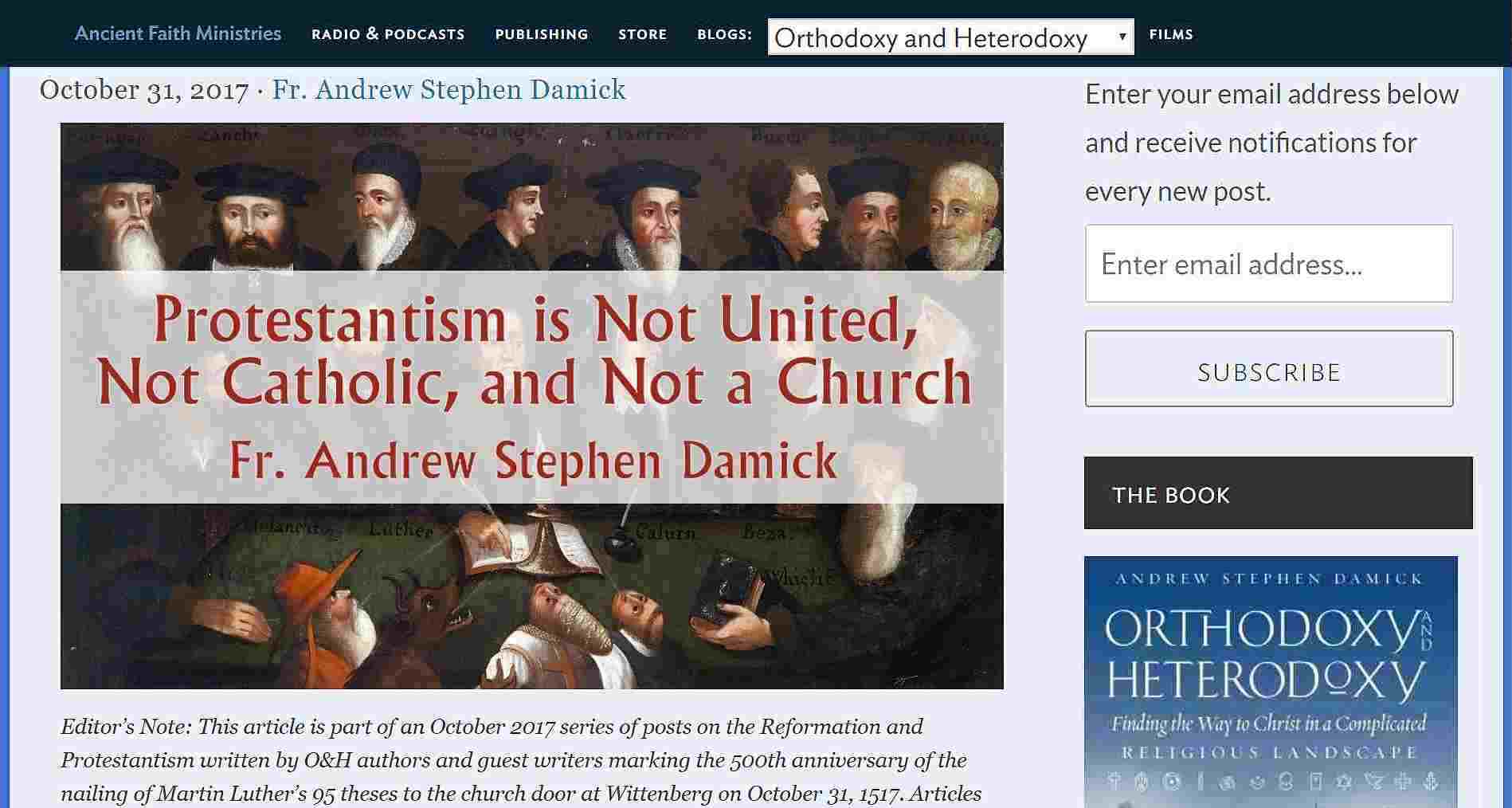| ↑ click! |
& SUBSCRIBE |
 In his article "Protestantism is Not United, Not Catholic, and Not a Church," Fr. Andrew Stephen Damick writes - "Today, Protestantism turns 500. And this month, we’ve been reflecting on this anniversary here at O&H in multiple ways—straight history, historiographical criticism, theological critique, as well as what the Orthodox can appreciate about and learn from Protestants. ...I would like to analyze where Protestantism is now regarding this question in terms of a recent attempt to speak for all or many Protestants. I sometimes hear people in both Orthodoxy and Roman Catholicism refer to “the Protestant church” (sic), and that expression always sends up red flags in my head, usually because it’s then followed by some generalization that doesn’t universally apply or even applies only to some minority of Protestants" This article examines the "Reforming Catholic Confession" which is neither Reforming - it doesn't call for a definite change or reform; nor Catholic - it doesn't call for any real, visible, tangible unity; nor a Confession - it doesn't agree on a fixed creed, but instead "however you choose to interpret Scripture and the first four Ecumenical Councils." This is the fundamental problem with Protestantism: by rejecting the authority of the Roman Church and its Pope, each Protestant believer in effect becomes a Pope unto himself because he can interpret Scripture and the decisions of Church Councils however his human reason leads him to, which has led to the tens of thousands of denominations with mutually contradictory doctrines. In a Twitter post today, Fr. Andrew Stephen Damick referred to another article, "500 Years After Luther, We Still Feel the Pressure to Be Justified" - a great overview of Luther's conversion when he discovered how Law and Gospel together bring about justification by faith (which we Orthodox have believed for 2,000 years). The invention of the printing press and Luther's call for "sola Scriptura" has brought about a return to the Bible as authoritative in our Christian lives. So I don't mean to demean Protestants' high regard for Scripture: I was raised as an Evangelical Protestant, I've memorized most of the New Testament and large portions of the Old Testament, and I've published a revision of the Russian Bible and harmonies of the Gospels in the Russian, Mari and English languages. My doctoral dissertation was subtitled "A Biblical Theology of Ministry." But I'm the first to admit that I cannot rely solely on my own reason - even "enlightened by the Holy Spirit" - to rightly explain the Word of Truth. "No prophecy of Scripture is of private interpretation, for holy men of God were moved by the Spirit to write the Scriptures" (2 Peter 1:20) - so also councils of holy, godly men are called together to rightly interpret the Scriptures. Get the whole story: read the full article & get our free weekly newsletter: subscribe below! |